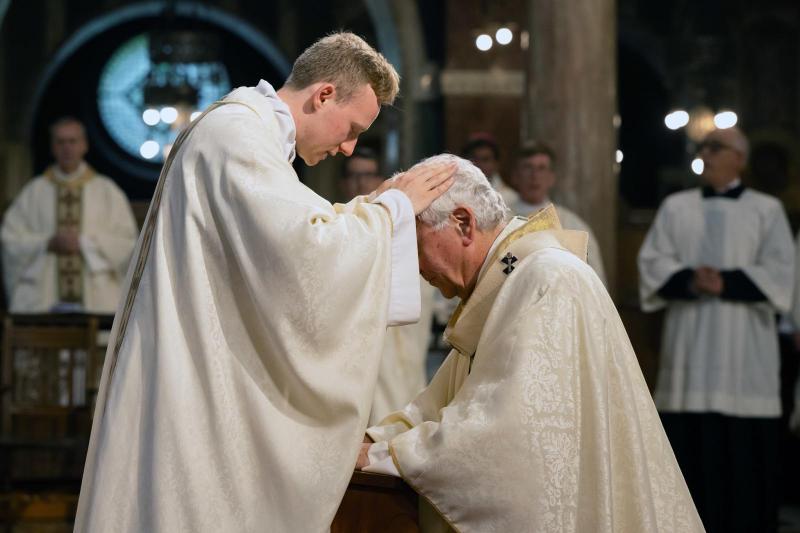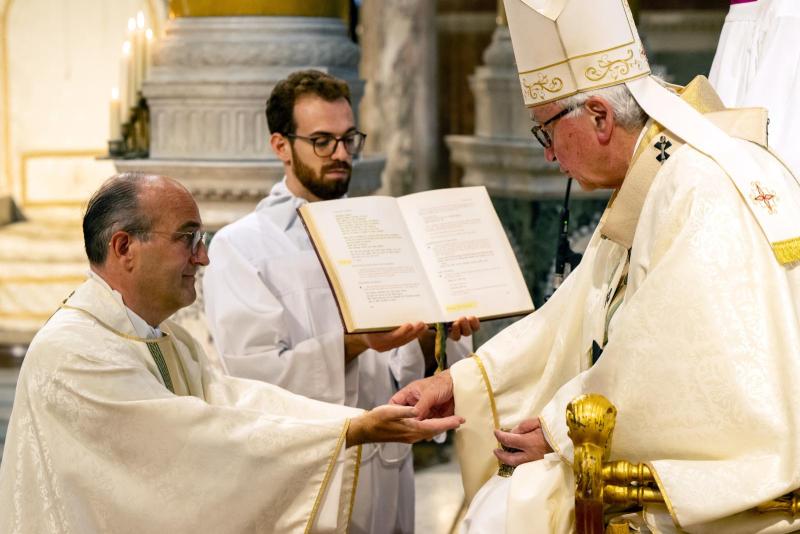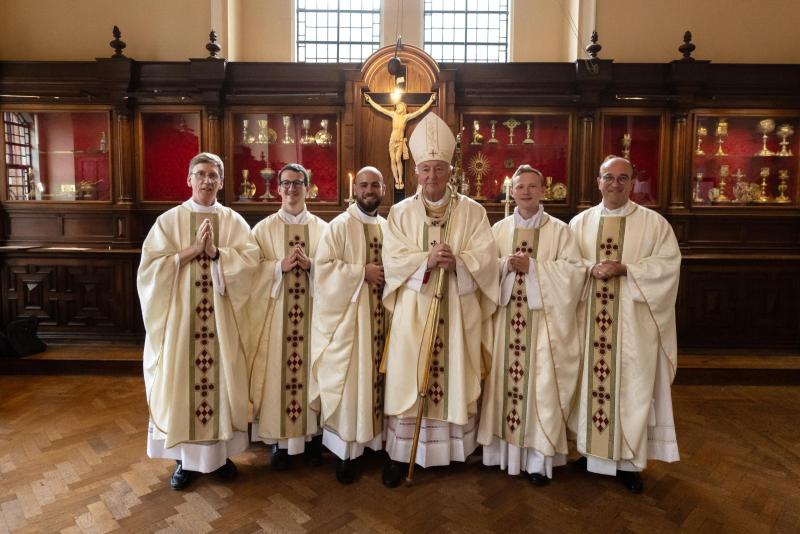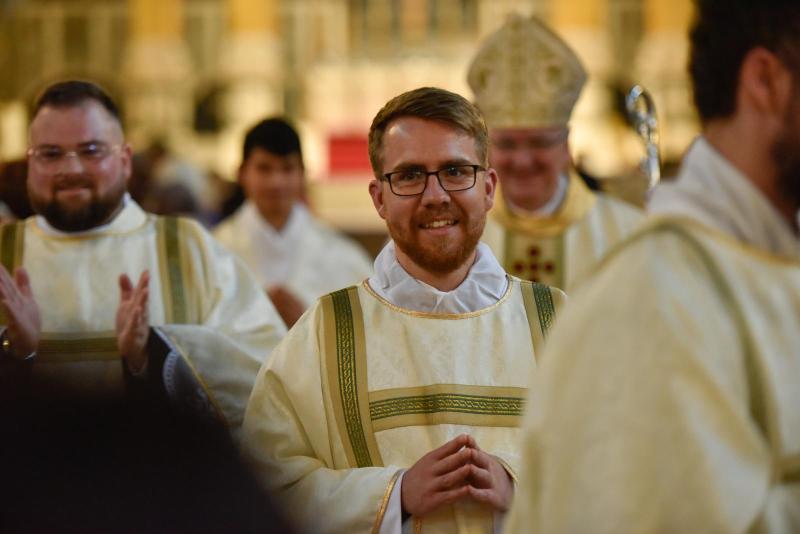by Rector Canon Roger Taylor
Put to the test to prove his identity in today's Gospel (John 5:31-47) in a hostile, adversarial situation, Jesus lines up his witnesses. The word of one man alone is not going to suffice, so Jesus points not just to the usual two required under the law, but to four, including the deeds, the works he has done. And in the world around us, still the word of one man, even Jesus's, is not going to suffice. He needs witnesses; he needs us, and not just our words.
There has been a lot around in the press and on the radio in the last few days about Pope Francis on the anniversary of his election. And speaking both to Catholic and non-Catholic friends alike, it is very clear indeed the impact he has had in spreading the message of God’s mercy, that has been such a feature of his pontificate. A few years ago, when there was much discussion about the need for a new evangelisation, there was much less clarity as to what that might consist of; but it seems to me that being very visibly a church of welcome and kindness and gentleness and understanding and accompaniment and mercy is very much at the heart of things – and preaching that mercy ourselves authentically of course depends to a large extent on our own critical and honest self-awareness, and an understanding of our own deep need of mercy.
It has all brought to my own mind the expression – that what the church needs now is not so much teachers as witnesses. Our people are maybe tired of being preached at or lectured to. Maybe that is not going to capture the mood of our society or even the church at this point. Maybe, reading the signs of the times, that is not the best place to begin. Maybe what people want to see above all is authenticity – real witness and not just words. And this got me thinking about what kind of witnesses we are as priests and future priests in parish life.
Coincidentally, I have been reading the James Mallon book – Divine Renovation. It has a lot going for it, but the more I reflected on the strap line – From maintenance into mission – I realised that a superficial understanding could see maintenance and mission as two different or separate activities. Ideas of maintenance and mission, or of witness and teacher - they aren't opposed to each other, any more than they were in the life of Jesus. It isn't either/or - it's both. As parish priests there can't be one without the other; it's charism and institution. And we have to be rooted first of all in the communities that we are called to serve, witnessing to God's love in the deeds and works that we do, as authentic shepherds.
At the heart of things, the bedrock, as both leaders and servants of the people to whom we have been sent, if we don’t fundamentally show our love and care and mercy to the whole community that we serve, our mission will founder. If we don’t visit the sick; if we don’t encourage those who choose to sit behind a pillar or in a pool of darkness in our churches, perhaps reflecting a darkness in their own lives; if we are perceived to be harsh and judgemental and act as dictators; if we are more interested in programmes than people - then we will be falling at the very first fence of what it is to be a shepherd. If we don't reach out to our poor and marginalised; if we don't actively work for God's justice – it's all just words. Kindness, gentleness, generosity, understanding, accompaniment, mercy – news of these qualities lived out in ourselves, and in how we exercise our ministry, will spread like wildfire in our parishes and will draw everyone in, as Pope Francis's proclamation of the mercy of God has so clearly shown us, and enable us then to accompany our people in trust, as we all try to take the next missionary steps in faith together.
And by the way, a kind priest, who is manifestly an agent of God’s mercy, is also a priest who will be forgiven much – and believe me, there will be much in ministry for which you will need to be forgiven. You, too, will need mercy – God’s mercy and the mercy of the people you serve.




